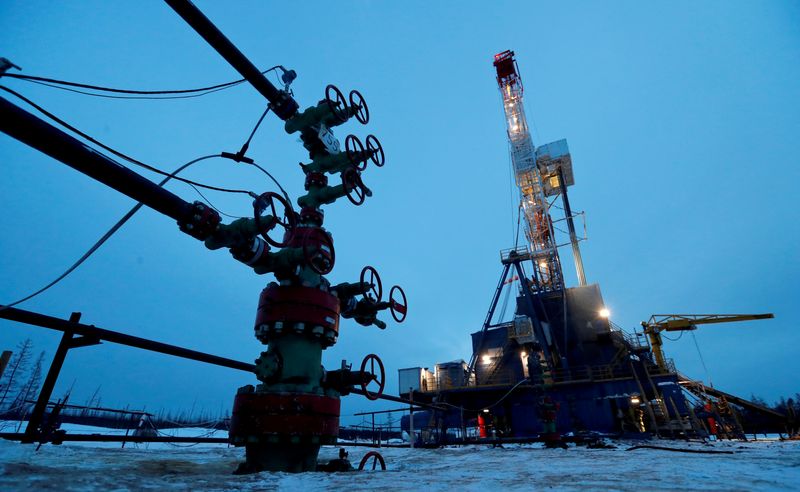By Arathy Somasekhar
HOUSTON (Reuters) - Oil prices edged higher in choppy trading on Monday, as markets weighed a tentative U.S. debt ceiling deal that would avert a default by the world's top oil consumer against further Federal Reserve interest rate hikes that could curb energy demand.
Brent crude futures settled up 12 cents, or 0.2%, to $77.07 a barrel, while U.S. West Texas Intermediate crude was up 25 cents, or 0.3%,at $72.92 a barrel.
Both benchmarks flip-flopped between positive and negative territory. Trade was subdued on Monday because of UK and U.S. public holidays.
"The euphoria of the debt deal is wearing off as concern mounts for another rate hike by the Fed in June," brokerage Liquidity Energy LLC wrote in a note.
U.S. President Joe Biden and House of Representatives Speaker Kevin McCarthy over the weekend forged an agreement to suspend the $31.4 trillion debt ceiling and cap government spending for the next two years. Both leaders expressed confidence that both Democratic and Republican lawmakers will support the deal.
Still, analysts saw any boost in oil prices from it as short-lived.
Markets are now pricing in a roughly 50-50 chance that the Fed raises rates by another 25 basis points at its June 13-14 meeting, up from the 8.3% chance predicted a month ago, according to CME's FedWatch Tool.
At its last policy meeting on May 2-3, the Federal Reserve signaled it was open to pausing its most aggressive rate-hiking cycle since the early 1980s in June.
"Higher U.S. rates are a headwind for crude oil demand," IG Sydney-based analyst Tony Sycamore said.
The dollar also nudged down on Monday as the debt ceiling deal lifted risk appetite in world markets and dented the greenback's safe-haven appeal. A lower greenback helps demand for oil, which is priced in dollars.
The Organization of the Petroleum Exporting Countries (OPEC) and allies including Russia, known as OPEC+, are due to meet on June 4.
Saudi Energy Minister Abdulaziz bin Salman warned short-sellers betting that oil prices will fall to "watch out," in a possible signal that OPEC+ may further cut output.
However, comments from Russian oil officials and sources, including Deputy Prime Minister Alexander Novak, indicate the world's third-largest oil producer is leaning toward leaving output unchanged.
"Traders have been left a little confused as to what we can expect," said Craig Erlam, senior markets analyst at OANDA.
"It may be that Saudi Arabia wants to keep traders on their toes, but to make these comments and not follow through could be perceived as weak and see prices drift lower again," Erlam said.
